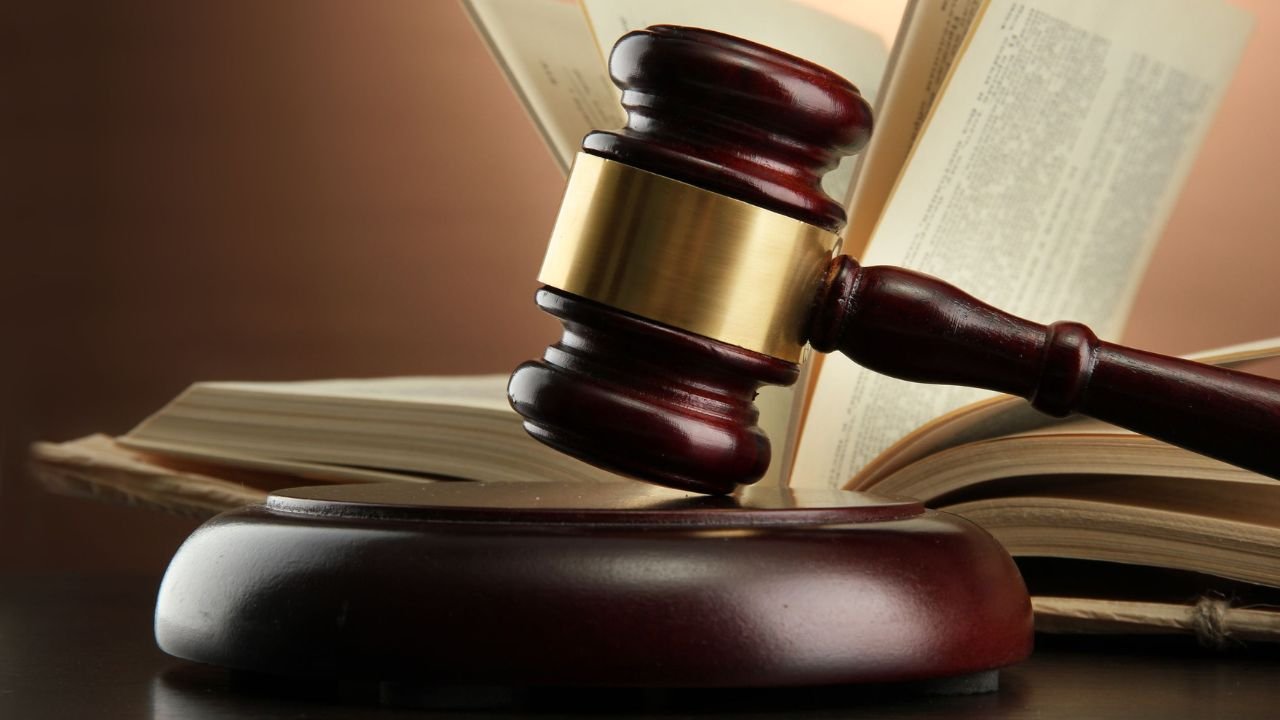Is It A Crime To Curse At Someone? Cursing at someone may be considered disorderly conduct or harassment, depending on the context and severity.
In today’s society, tempers flare, and it’s not rare for individuals to use strong language to communicate. Occasionally, people curse at others in frustration, anger, or even jokingly in the heat of the moment. However, when does cursing go too far? Is cursing at someone a crime?
While profanity and swearing are a part of everyday language for many, it’s important to understand the legal implications of using offensive language, particularly when it’s directed at another person.
In this blog post, we will explore the laws surrounding verbal abuse, disorderly conduct, and the potential legal consequences of cursing at someone.
Contents
- 1 What is Considered Cursing or Verbal Abuse?
- 2 Laws Regarding Cursing at Someone
- 3 Disorderly Conduct and Harassment
- 4 When Does Cursing Become a Crime?
- 5 Freedom of Speech vs. Verbal Abuse
- 6 Examples of Legal Consequences
- 7 Can You Defend Yourself Against Cursing Charges?
- 8 Conclusion: Is It A Crime To Curse At Someone?
- 9 FAQs
What is Considered Cursing or Verbal Abuse?
Defining Cursing:
Cursing, which is also known as swearing, using profanity, or saying expletives, is commonly taken to mean the use of vulgar or offensive language. Such words or phrases may contain explicit words or insults directed at other people, which are often used to convey anger or frustration.
Cursing is perhaps acceptable when people are chatting informally or with friends, but the context is different when such words are used to insult or degrade someone directly.
Cursing in a private or informal setting might not always carry the same weight as when it’s directed at someone in a public or confrontational manner.
Verbal Abuse vs. Casual Swearing:
It’s essential to distinguish between casual swearing and verbal abuse. Casual swearing is often used in everyday conversations without the intent to harm or insult others.
However, when that language is directed at an individual with the purpose of insulting, belittling, or provoking them, it becomes verbal abuse. [Is It A Crime To Curse At Someone?]
Verbal abuse goes beyond the use of strong language—it’s a consistent pattern of behavior that seeks to control, belittle, or cause emotional harm to another person.
Cursing may be a single instance of verbal abuse, but when combined with other behaviors, it can be classified as part of a larger pattern of emotional manipulation or mistreatment.
See Also: Is It A Crime To Be Gay In Iran? Homosexuality in Iran
Laws Regarding Cursing at Someone
General Legal Context:
In many places, simply cursing at someone isn’t typically considered a criminal offense. However, the legality of using profanity, particularly in public or towards another person, can be quite complex. Generally speaking, the use of curse words is protected under the right to free speech.
That being said, freedom of speech doesn’t mean that individuals are free to speak without consequences, especially when their words negatively impact others or lead to a public disturbance. [Is It A Crime To Curse At Someone?]
Laws around offensive language often hinge on the context in which the cursing takes place. If the cursing is done in a manner that disturbs the peace, causes harm, or leads to violence, legal action may be taken.
In many cases, public profanity or verbal abuse is tied to the concept of disturbing the peace, and individuals can be held accountable for creating a hostile or uncomfortable environment through their words.
State and National Variations:
The way cursing is regulated varies significantly from state to state and even from country to country. For example, in the United States, laws concerning public indecency and disturbing the peace are often handled at the state or municipal level, so what is permissible in one area may not be in another.
Certain states may have laws specifically addressing the use of offensive language in public spaces, while others may not treat cursing as a major legal issue unless it leads to a public disturbance or threatening behavior.
In some parts of the world, especially in countries with stricter public morality laws, cursing at someone could lead to more severe consequences. [Is It A Crime To Curse At Someone?]
In some countries, verbal abuse might be viewed as a criminal offense, punishable by fines, arrest, or even imprisonment, especially if it involves harassment or public disorder.

Disorderly Conduct and Harassment
What is Disorderly Conduct?
Disorderly conduct is a legal term that generally refers to actions that disturb the peace or create a public nuisance. While the act of cursing by itself may not necessarily qualify as disorderly conduct, using offensive language in certain ways can result in charges.
Disorderly conduct laws are designed to prevent actions that disrupt the general peace and order of society, and this can include loud or profane language in public spaces.
If an individual curses loudly in a crowded place or uses obscene language to provoke or disturb others, it may be considered disorderly conduct. [Is It A Crime To Curse At Someone?]
For example, a person yelling expletives on a busy street or in a public setting, causing people around them to feel uncomfortable or unsafe, might be arrested for disturbing the peace.
Essentially, it’s not just the use of curse words that matters but the way those words affect others and whether they create chaos or harm.
When Does Cursing Become Harassment?
Harassment occurs when a person’s actions or words create a hostile or intimidating environment for another individual. Cursing at someone repeatedly or in a manner meant to provoke or demean them crosses the line into harassment.
While one instance of cursing may not be considered harassment, a pattern of verbal abuse, particularly if it is persistent and intended to cause distress, can be seen as harassment.
Under the law, harassment involves behavior that is intended to create fear, humiliation, or emotional distress. For example, if someone repeatedly curses at another person in the workplace, school, or in public spaces, and the intent is to cause harm or create discomfort, this could be considered harassment.
Legal protections against harassment exist in many areas, and individuals who engage in such behavior may face legal consequences. [Is It A Crime To Curse At Someone?]
When Does Cursing Become a Crime?
Public Disturbance and Threatening Language:
Cursing becomes a crime when it leads to a public disturbance or when it is used in a threatening manner that might incite violence. The use of offensive language becomes criminal if it provokes others into violent behavior or causes a dangerous situation.
For instance, if one person curses at another in a confrontational manner, and this leads to a physical fight or altercation, it can be considered a criminal act.
Similarly, if the cursing is accompanied by threatening language or physical intimidation, it can become a criminal offense. [Is It A Crime To Curse At Someone?]
For example, threatening someone with harm while using profanity can elevate the situation from a simple verbal exchange to an act of intimidation or assault.
Escalation to Criminal Activity:
Cursing can also escalate into criminal activity when it’s part of a larger pattern of aggressive or threatening behavior. If the language used is intended to intimidate, provoke violence, or manipulate others, it may be subject to criminal charges.
For example, a person who curses at someone in a threatening way may be charged with assault, harassment, or even hate speech, depending on the circumstances and the severity of the language.
In some cases, individuals may also face charges related to disturbing the peace or causing a public nuisance if their cursing leads to significant disruptions in public spaces.
The key factor in determining whether cursing becomes a crime is whether it leads to harm or creates an environment where violence, intimidation, or fear is likely. [Is It A Crime To Curse At Someone?]
Freedom of Speech vs. Verbal Abuse
Balancing Free Speech and Protection:
In many countries, including the United States, free speech is a fundamental right that is protected under the Constitution.
However, this right is not without limitations. While individuals are free to express their thoughts and opinions, they are not free to use their speech to harm others or incite violence. This is where the balance between free speech and verbal abuse comes into play.
Although cursing may be viewed as a form of self-expression, it’s important to recognize that this right does not extend to using language in a way that infringes upon the rights of others.
In situations where speech crosses into harassment, threats, or incitement to violence, it is no longer protected under free speech laws. [Is It A Crime To Curse At Someone?]
Court Cases and Precedents:
Over the years, several court cases have helped define the boundaries of free speech and verbal abuse. One of the most significant rulings in U.S. legal history regarding offensive language was the 1942 case Chaplinsky v. New Hampshire.
In this case, the U.S. Supreme Court upheld the conviction of a man who used offensive language to provoke a public disturbance. [Is It A Crime To Curse At Someone?]
The Court ruled that speech that incites violence or causes harm can be restricted, even if it falls under the umbrella of free speech.
The ruling in Chaplinsky v. New Hampshire established the legal precedent that speech containing offensive language may be limited if it is likely to provoke violence. This principle has been upheld in subsequent cases involving verbal abuse, hate speech, and public disturbances.
Examples of Legal Consequences
Real-Life Examples:
There have been several instances where individuals have faced legal consequences for cursing at others. In one example, a person who was publicly cursing at another individual in a public space was arrested for disturbing the peace. In another case, someone who used vulgar language towards a police officer was charged with disorderly conduct.
In workplace or school environments, individuals who engage in verbal abuse may face disciplinary action, such as suspension, expulsion, or termination. Legal action may also be taken if the cursing is part of a broader pattern of harassment or intimidation.
Potential Legal Consequences:
Legal consequences for cursing at someone can range from minor penalties to more serious charges, depending on the situation:
Fines: A person who is found guilty of disturbing the peace or engaging in disorderly conduct may be fined. [Is It A Crime To Curse At Someone?]
Jail Time: In more severe cases, particularly those involving threats or violence, individuals may face jail time for their actions.
Civil Lawsuits: In addition to criminal charges, individuals who engage in verbal abuse may face civil lawsuits for emotional distress or harassment. These lawsuits can result in financial compensation for the victim.
Can You Defend Yourself Against Cursing Charges?
Legal Defenses:
If you are accused of cursing at someone, there are several potential defenses. One of the most common defenses is the right to free speech.
In many cases, individuals may argue that they were simply expressing their opinions or emotions, and their words were not intended to harm anyone.
However, this defense may not be successful if the words were threatening, harassing, or caused a public disturbance. [Is It A Crime To Curse At Someone?]
Freedom of Speech as a Defense:
In some cases, the accused may claim that their use of profanity was protected by the First Amendment (in the U.S.) or similar free speech protections in other countries.
However, this defense can be limited if the speech was deemed to cause harm or incite violence. Courts have consistently held that free speech does not protect speech that is likely to lead to violence or threaten the safety of others.
Conclusion: Is It A Crime To Curse At Someone?
Cursing at someone may seem like a harmless act, but it can have serious legal implications, especially if it leads to a public disturbance, harassment, or violence.
While the right to free speech protects offensive language to some extent, it is important to understand that this right has limits. [Is It A Crime To Curse At Someone?]
Words that incite violence, intimidate others, or cause emotional harm may result in legal consequences. Knowing the possible legal dangers and being careful about what one says are the keys to navigating encounters in a responsible manner.
FAQs
Is it always illegal to curse at someone?
No, it is not always illegal to curse at someone, but it may be a legal problem if it causes a public disturbance, harassment, or threats.
What is the penalty for public cursing?
The punishment for cursing in public can range from fines to charges of disorderly conduct or disturbing the peace, depending on the situation.
Can I be arrested for swearing at someone in my home?
Swearing at someone in your home is generally not a crime unless it escalates to harassment or physical altercations.
Does the severity of the curse word matter in legal cases?
The severity of the curse word may matter in legal cases, especially if the language is threatening or causes a public disturbance. [Is It A Crime To Curse At Someone?]
What should I do if I’m falsely accused of cursing at someone?
If you are falsely accused of cursing at someone, you can defend yourself by providing evidence that your words were not threatening or harmful. Seeking legal counsel is advisable for assistance.

Vicente Underwood is from New Jersey, USA. He studied law and now works with his senior. In his free time, he writes blogs. Jackson is a proud father of two girls and enjoys balancing his work and family life.




